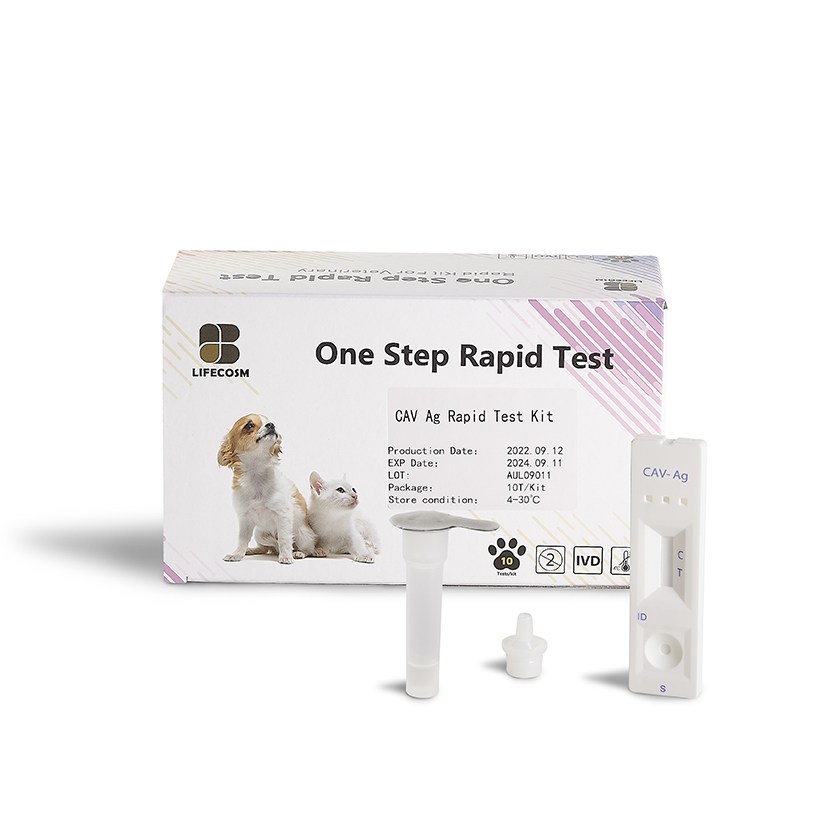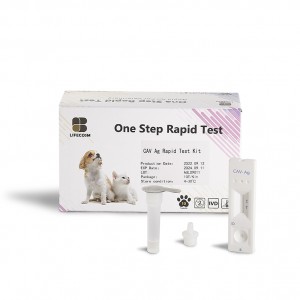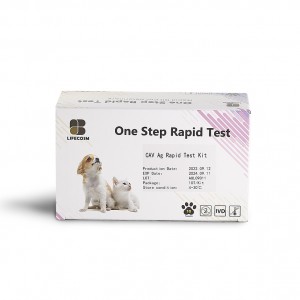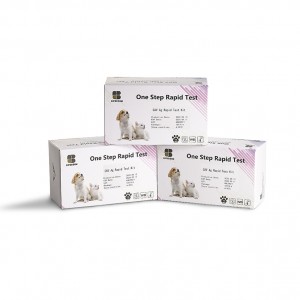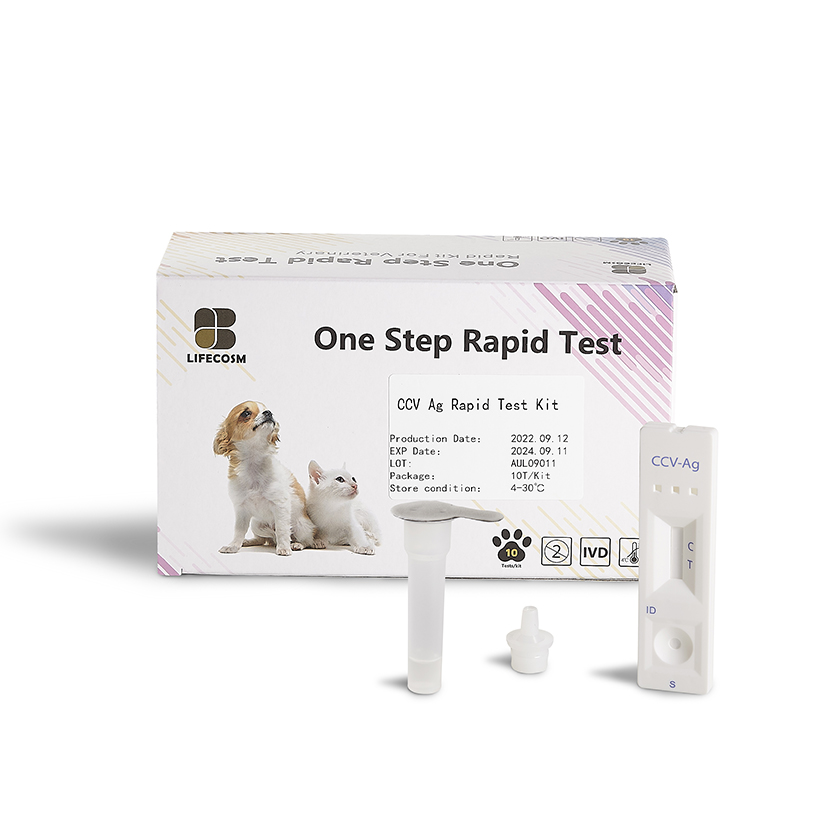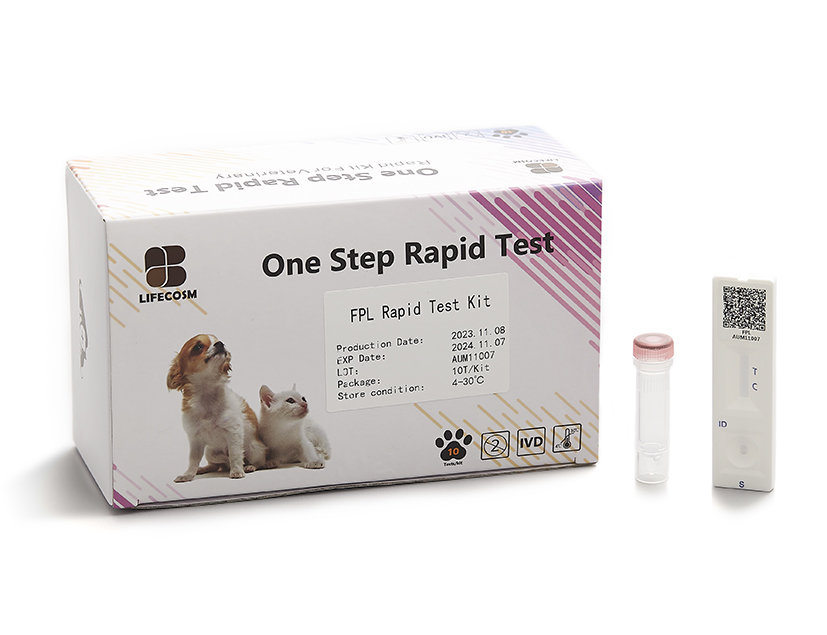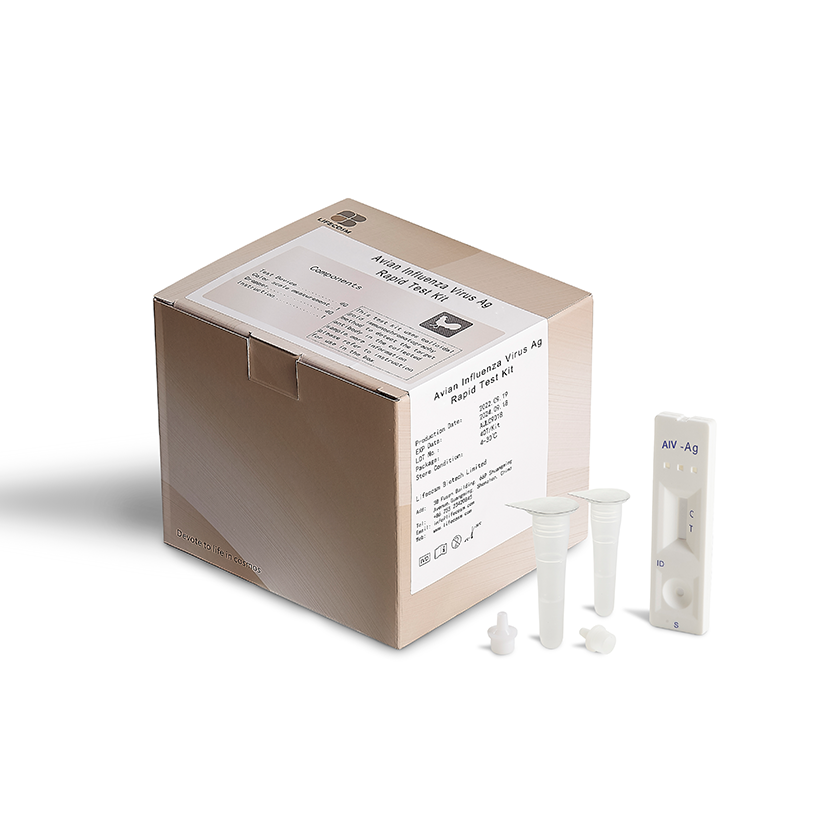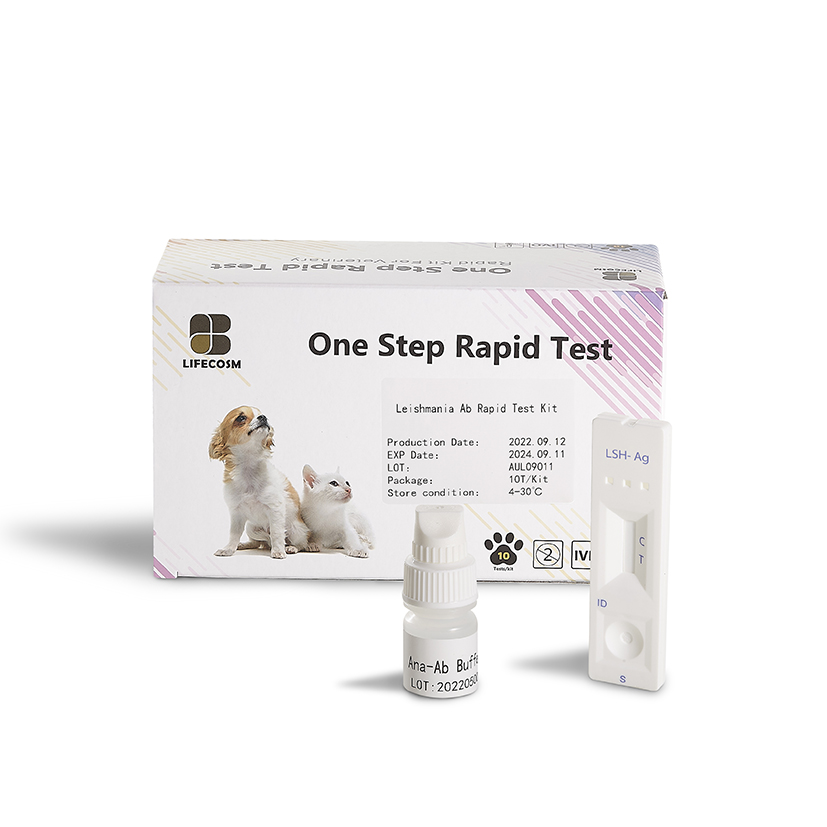
Products
Lifecosm Canine Adenovirus Ag Test Kit
Canine Adenovirus Ag Test Kit
|
Canine Adenovirus Ag Test Kit |
|
| Catalog number | RC-CF03 |
| Summary | Detection of specific antigens of canine adenovirus within 15 minutes |
| Principle | One-step immunochromatographic assay |
| Detection Targets | Canine Adenovirus (CAV) type 1 & 2 common antigens |
| Sample | Canine ocular discharge and nasal discharge |
| Reading time | 10 ~ 15 minutes |
| Sensitivity | 98.6 % vs. PCR |
| Specificity | 100.0 %. RT-PCR |
| Quantity | 1 box (kit) = 10 devices (Individual packing) |
| Contents | Test kit, Buffer bottles, Disposable droppers, and Cotton swabs |
| Caution | Use within 10 minutes after openingUse appropriate amount of sample (0.1 ml of a dropper)Use after 15~30 minutes at RT if they are storedunder cold circumstancesConsider the test results as invalid after 10 minutes |
Information
Infectious canine hepatitis is an acute liver infection in dogs caused by canine adenovirus. The virus is spread in the feces, urine, blood, saliva, and nasal discharge of infected dogs. It is contracted through the mouth or nose, where it replicates in the tonsils. The virus then infects the liver and kidneys. The incubation period is 4 to 7 days.

Adenovirus
Symptoms
Initially, the virus affects the tonsils and larynx causing a sore throat, coughing, and occasionally pneumonia. As it enters the bloodstream, it can affect the eyes, liver, and kidneys. The clear portion of the eyes, called the cornea, may appear cloudy or bluish. This is due to edema within the cell layers forming the cornea. The name 'hepatitis blue eye' has been used to describe eyes so affected. As the liver and kidneys fail, one may notice seizures, increased thirst, vomiting, and/or diarrhea.

